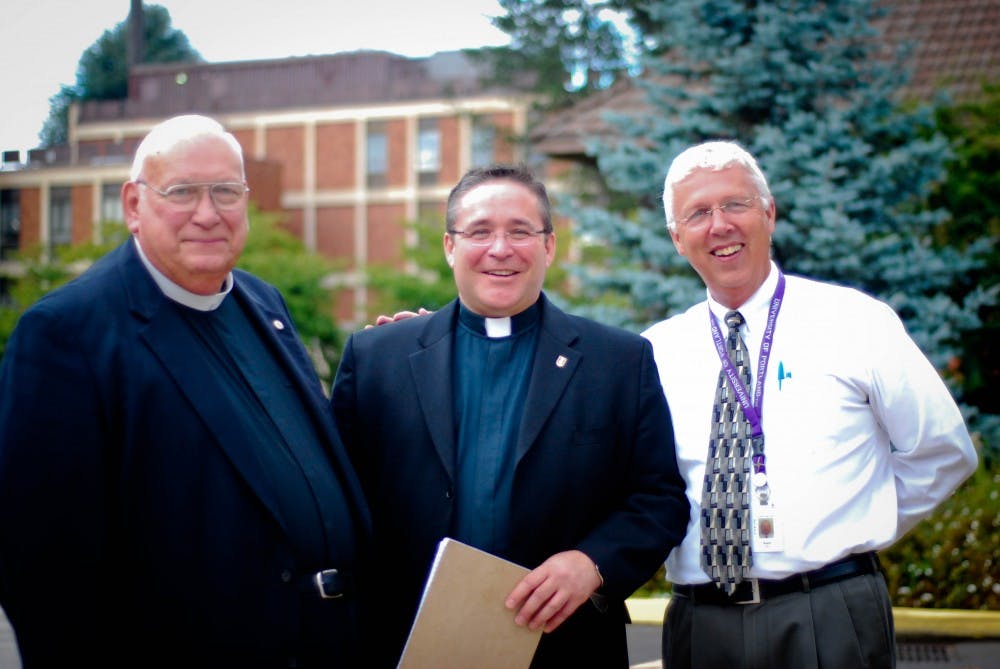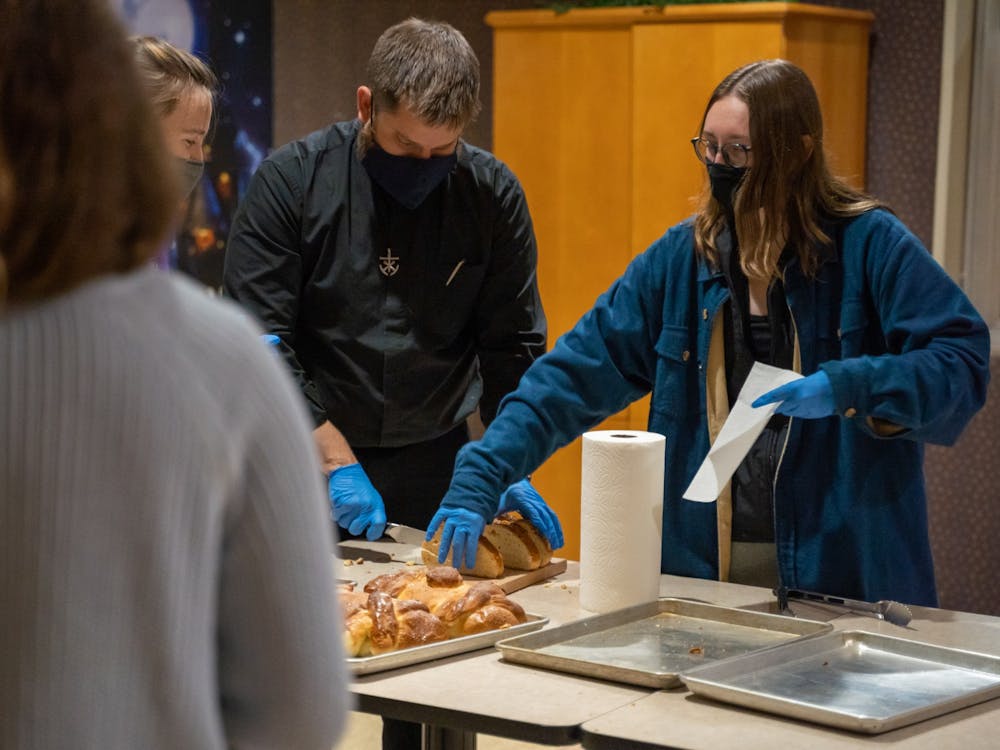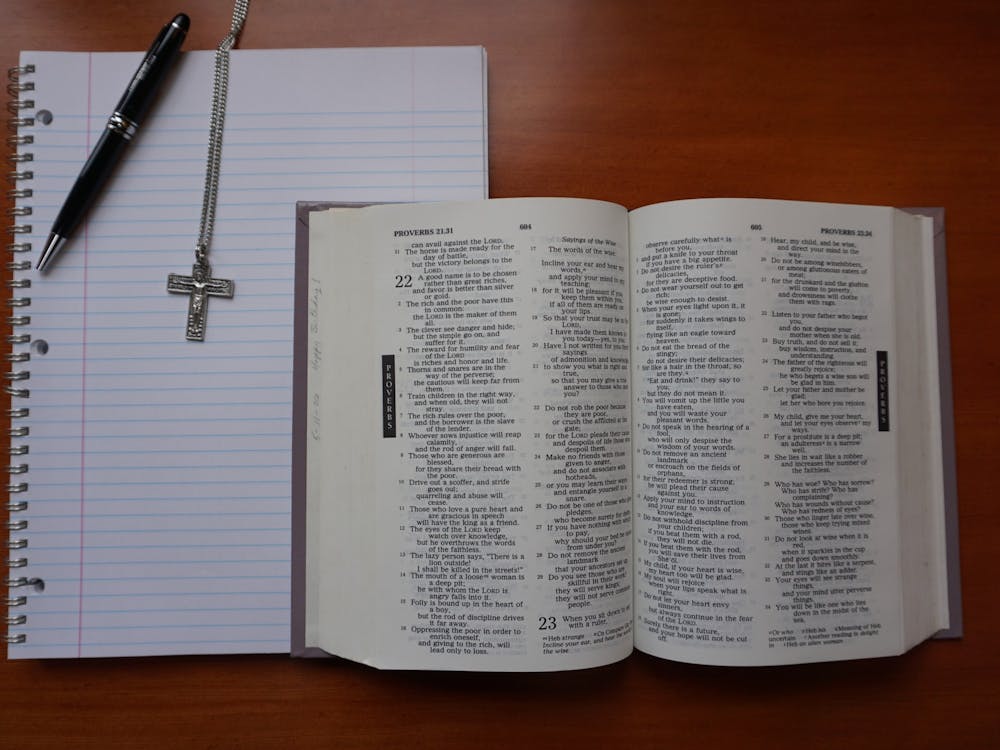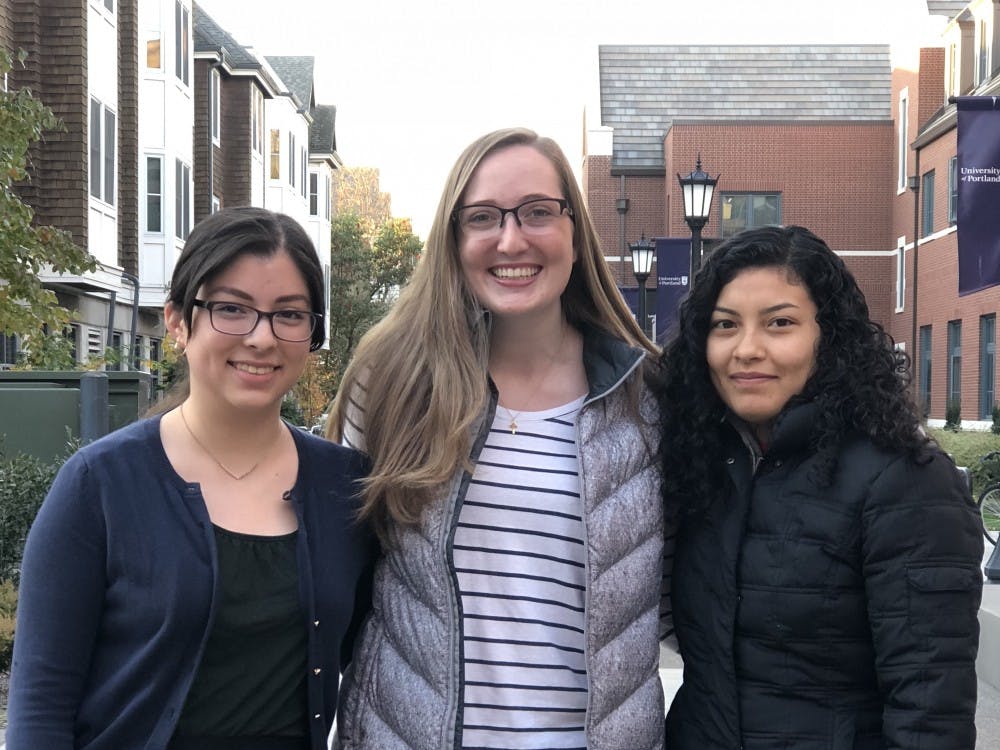By Fr. Gary Chamberland |
When I arrived on The Bluff, the University was a far different place than the one we know today. The newly constructed Chiles Center was preparing to host President Reagan as its first official function. Mass was held in the rustic St. Mary’s Chapel and Villa Maria Hall had just become a men’s hall after having served as the first women’s residence hall since 1957. Half of the third floor of Christie was a residence for Holy Cross priests and brothers who lived in simple rooms and walked down the corridor to use common restrooms and showers. The campus was a little down at heel, but faculty, students and staff alike loved this little school on The Bluff. It was then that this place stole my heart.
Returning in 1992 to serve as the lay rector of Shipstad Hall, an air of vibrancy had infused the place. Fr. David Tyson, C.S.C. had become president after Fr. Tom Otto, C.S.C.’s tragic death in a car accident. In the meantime, the Chapel of Christ the Teacher had been built and St. Mary’s turned over to Student Activities. The Pilot House had been rebuilt and enlarged to what we know today. Yet, on the main academic quad, three small wooden buildings remained, the remnant of the World War II surplus buildings that once made up so much of campus. The Health Center, Columbia Hall and the Chemistry Annex stood where Franz Hall stands now and on the hill above Orrico Hall. Since the Chemistry Annex moved when someone walked through it, it always scared me that open flames were allowed in its laboratories.
In my time at Shipstad, I lived with residents with whom I remain close, though it would have been impossible then to predict that two of those guys would eventually become high school principals today. Others are doctors, and researchers, and businesspersons and many are parents as well. Sweatpants and flip-flops gave way to business suits, and daily concerns have shifted to financing their own children’s college experience. Many of them continue to ask important questions about their life’s purpose, their role in their family and community and their responsibility for their environment and their world.
In 2009, I returned as director of Campus Ministry and it has been a joy to walk side-by-side with you during significant moments in your lives. As priests, we are privileged to celebrate life’s highs and mourn its lows. We mark life’s seasons with ritual and are privileged to experience the blossoming of adolescence into focused, mature adulthood.
The campus had also changed, with Franz Hall anchoring the transition. When it was first built, it stood as a sign of hope of the University’s potential. Today, it is a statement of all we have become. We have burst our boundaries both physically, having replaced blocks of houses with stately residence halls, and in terms of mission: sending nurses, engineers, teachers, doctors and businesspeople into the world prepared and ready to make it a better place.
My return was a movement of the heart for I love this university and our commitment to educate young people in the affairs of the heart, those that impel each of us to discover the deepest longing in our lives. I love how we strive to help each member of this community figure out how to return love for love and rest in the fullness of the divine embrace. I love how faith and the questions it raises are welcomed topics of discussion and how all people - together with their strengths and weaknesses and even doubts - are invited to join the conversation.
Yet my leaving in a few weeks’ time is another movement of the heart as I feel the need to be closer to my parents as they age and as their lives become more complicated. Leaving is its own heartache, but I am thankful for my brothers in Holy Cross who are both willing and able to support me in this desire and helped me find a position closer to home.
Here at this sacred place, I have experienced the fullness of Eucharistic joy. We have told the story of our faith in both the scriptures and in our lives, and we have come to know God’s love in the fellowship of our common tables. I go forth from The Bluff refreshed and strengthened for the rest of my journey. I leave keenly aware of our participation in the Body of Christ and know I have been continually made new in the communion we share. Faith and community and hope are not mere concepts dissected in a class. They are a lived reality at UP and I am forever grateful for being a part of it.








